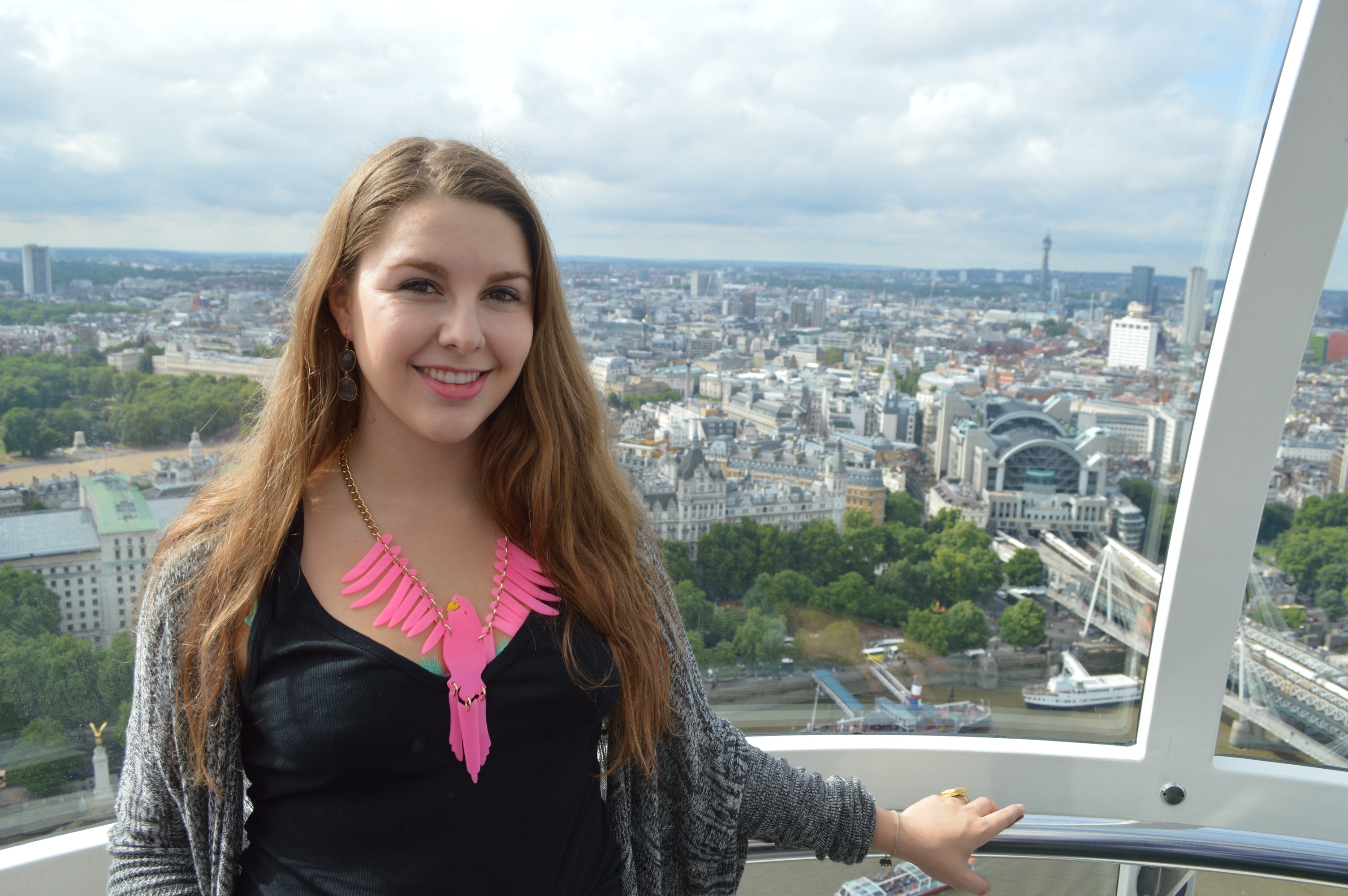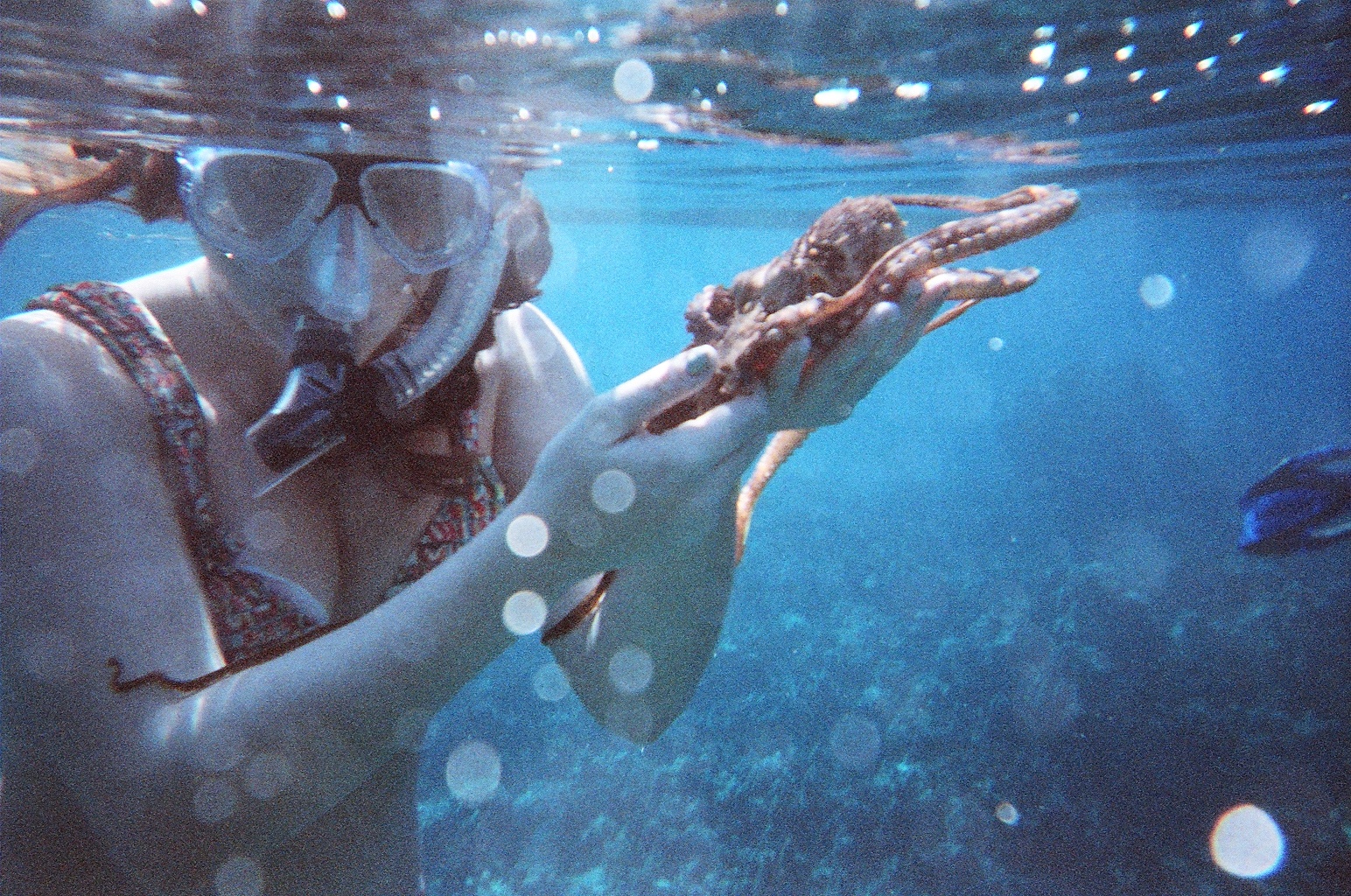
I arrived at college in September, barely legal, but fully ready to live out the Hollywood higher education stereotype. I was fighting a cold but didn’t let that stop me from attending every party I could. The revelry lasted until October, when the “cold” was diagnosed as chronic myelogenous leukemia (CML).
I went to the university health center on suspicions of mono, and the next thing I knew I was on the oncology floor of a Boston hospital. My mother flew in from Texas just in time for my diagnosis. Several doctors sat me down, gave me the news, and then looked at me expectantly. I tried to seem unemotional and think of questions to ask, but really just wanted to be left alone.
A constant stream of visitors was a blessing, but also meant that I had to fake acceptance and understanding to make others comfortable. It took me several weeks to comprehend that my version of the ideal college experience—fraternity parties, boyfriends, spring break trips—would not be happening.
Despite their best efforts, no one could truly understand what I was going through. I stayed in the hospital for five days before being unceremoniously tossed back into the confines of my freshman dorm. I took some chemotherapy pills to kill off my excess white blood cells (in the 70,000s at diagnosis), then began my daily ritual of Tasigna (nilotinib) pills to treat my CML.
This was not what I thought getting cancer would be like! There were still midterms to catch up on, and the world wasn’t stopping to acknowledge my struggle. I had just started college and hadn’t made any strong friendships. I walked around a crowded campus feeling oh-so-alone.
Managing School and Cancer
Walking is perhaps not as accurate as “huffing and puffing.” I was exhausted by any small task or movement, as a side effect of my Tasigna is chronic fatigue. Another side effect is my inability to have children while on the drug due to birth defects. I wonder if I’ll be able to have children at all. Tasigna is a new drug, and the long-term side effects aren’t known. Even worse, I’m also not allowed to eat grapefruit—I love grapefruit!
During the first few months, my lymph nodes would balloon unpredictably, as they had at diagnosis. This alarmed my doctors and sent me back to the hospital on two different occasions. No ENT or infectious disease expert was ever able to explain this phenomenon. I like to think my body has a built-in alarm system—at diagnosis, I was in the chronic phase of CML (first phase of three), even though my symptoms reflected a blast-phase crisis (stage three). Had my lymph nodes not swollen to epic proportions, I would not have gone to my university’s health services center, and my CML could have advanced undetected. Today, any bad behavior—such as sleep deprivation, drinking, or generally running myself down—results in a warning flare from the all-knowing nodes.
Doctor appointments became less regular and I spent the spring of my freshman year experiencing all the hangovers I missed that fall. Having cancer at a young age is exceedingly challenging due to the rising phenomenon known as FOMO—Fear of Missing Out. I was desperate to be normal, but it was taking a big toll on me. I was sick all the time—my lymph nodes constantly protruding. My doctors told me not to drink, as Tasigna is hard on the liver, but my stupid freshman self couldn’t resist. My liver function tests kept coming back excellent, so I kept making up for lost time. The peer pressure at parties and within college culture is huge. You can imagine why I didn’t feel like telling a cute boy “I have cancer” when he offered me a drink—or why I didn’t stay home. Don’t worry; I’ve long since squashed the desire to conform.
Blessing Emerging from Disguise
That summer, I stayed on campus for summer classes. I began working out, stopped drinking, ate an extremely healthy diet, and slept a ton. Miraculously, I stopped getting sick right away and felt amazing. This was a pivotal time. I began to think of my sickness as guiding me towards a better lifestyle. My cancer felt like a cosmic indication that I was destined to do something beyond the average life plan. I was able to take summer classes in London that year, and have since moved to New York, then back to Boston, and traveled many places. Learning to balance having fun (without alcohol!) and taking care of my health has been a long journey. Life pressed the “fast-forward” button on my crash course to maturation.
Tasigna is taken twice a day, with no food for 2 hours before and 1 hour after each time. This is definitely the worst part of the drug, but—small blessings—helps me control my relentless late-night snacking. The things that stink about having cancer also are my greatest gifts. Being forced to get sleep, schedule eating, and not drink helps me be healthy and prioritize what is important.
I spent a long time coming to terms with CML, but today—two years later—I feel the disease has so instrumentally shaped my life that I wouldn’t accept a do-over. I am constantly grateful to be taking an advanced medicine with very few side effects. For now, I take my Tasigna and hope—no, wait—for a medicine that isn’t a lifetime sentence to emerge.
Read Part 2: "Do I Have Cancer? I Almost Forgot."
Visit The Leukemia & Lymphoma Society's discussion board for young adults, join an online chat for young adults, watch a video series on young adult survivorship, or check out other resources.
Isabel Munson is a writer and economics student at Northeastern University. You can reach her @isabelmunson or www.econogist.com

